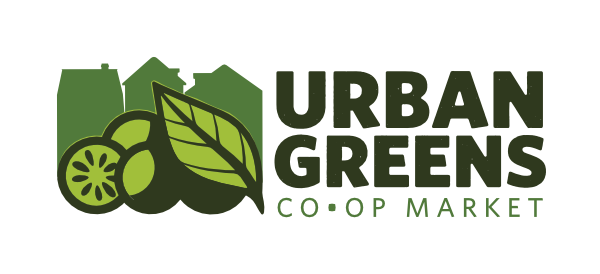August 30, 2023
Food Certifications
are labels or logos that provide consumers with information about specific characteristics or qualities of a food product. These certifications help consumers make informed choices based on their dietary preferences, ethical considerations, or health needs. Take a look at a few common food certifications and what their logos typically mean on food packaging:
Fair trade vs Fairtrade: notice if it’s one word or two.
-
Fairtrade:
- Logo: The Fairtrade logo usually includes a blue-green circle with a black and white image in the center.
- Meaning: Fairtrade certification ensures that the farmers and workers involved in producing the ingredients or products were paid fair wages and operated in ethical working conditions. It aims to promote sustainable farming practices and support local communities in developing countries.
Fairtrade (one word, described above) is only used by organizations, brands and products that are part of the Fairtrade International system, a global network of more than 2 million farmers in almost 80 countries worldwide. Look for the blue and green Fairtrade Mark on a product’s packaging. When products have this logo on them, it means that they meet rigorous social, economic and environmental standards, and they have been independently audited. Find it, for example, on Ben & Jerry’s Ice Creams and Endangered Species Chocolate bars.
Fair for Life is another verified certification organization. Find it, for example, on Harmless Harvest Coconut Water.
Fair trade
(two words) is not a protected term. It implies that some part of the process supports the fair trade economy, but this may not be certified with any third-party verification. Find more information here.
-
Non-GMO:
-
- Logo: The non-GMO logo often features a butterfly with a plant sprouting from it, along with the words “Non-GMO” or “Non-Genetically Modified.”
- Meaning: Non-GMO certification indicates that a product does not contain genetically modified organisms (GMOs), which are organisms whose genetic material has been altered through genetic engineering. This certification is important for those who prefer to avoid GMOs due to concerns about their potential impacts on health and the environment.
Unlike crop varieties developed through selective breeding, genetically modified organisms (GMOs) are created in a laboratory using genetic modification or genetic engineering techniques, and/or other biotechnologies.
The Non-GMO Project is a 501(c)(3) nonprofit organization committed to building and preserving the non-GMO food supply for all. Offering North America’s most trusted certification for GMO avoidance. With the Butterfly label, shoppers decide for themselves whether to consume GMOs. Surveillance and auditing programs of ingredients is part of the participation process for continued use of the icon.
-
Vegan:
-
- Logo: The vegan logo typically depicts a plant-based symbol, such as a stylized leaf or a plant.
- Meaning: Vegan certification means that a product does not contain any animal-derived ingredients and is produced without using any animal by-products. It’s suitable for individuals following a vegan diet, which excludes all animal products.
Products that bear the Certified Vegan logo do not contain animal products or byproducts and have not been tested on animals. But it’s not only the ingredients that make a product able to be Certified Vegan—the production process also matters. For a product to be Certified Vegan, production must be completely vegan.
-
Gluten-Free:
-
- Logo: The gluten-free logo often features the words “gluten-free” in a circle or a crossed-out wheat symbol.
- Meaning: Gluten-free certification indicates that a product does not contain gluten, which is a protein found in wheat, barley, and rye. This is important for individuals with celiac disease or gluten sensitivity.
Some sources cite that Gluten-free products must contain less than 20 ppm of gluten—the level considered safe for most people with celiac disease—to comply with labeling regulations in Canada and the US. Looking for more support? Try this link.
-
Kosher:
-
- Logo: The kosher logo varies but often includes a symbol such as a “K” or the word “kosher.”
- Meaning: Kosher certification is important in Jewish dietary laws. It indicates that a product has been prepared and processed according to kosher standards, which includes certain rules about ingredients, preparation, and supervision.
There are many different certifying organizations of Kosher. What many people we know want to know is if there’s dairy in it, or if supervised to be Kosher for Passover. Here’s a link to some kashrut symbols you might see and here’s an answer to the basic question: What is Kosher?
-
Green-e:
-
- Logo: The Green-e logo includes a leaf symbol along with the words “Green-e Certified.”
- Meaning: Green-e certification verifies that a product or service has met strict environmental and renewable energy standards. It’s often associated with renewable energy sources and carbon offset programs, indicating that the product or service has a reduced carbon footprint. Green-e certification is relevant for environmentally-conscious consumers who want to support sustainable practices and reduce their ecological impact.
Some other certifications to look for are B-Corp, made by Renewable Energy, Biodegradable. We’ll get to those and more another time.
Make your next trip to The Co-op fun for yourself & the kiddos.
Seek out these and other logos and learn something about your food!
We hope this was helpful to you!
Recent Posts
Welcoming Jenny
Welcome new GM Jenny Wilson! Urban Greens Co-op Market welcomes Jenny Wilson as our new General Manager! Urban Greens' Board of Directors announced the appointment of Jenny M. Wilson as its new General [...]
Annual Meeting, Nov 16 2025
Member-Owner Meeting, November 16, 2025 Please Join Us! Details for Our Virtual Annual Meeting & Board Election When: Sunday, November 16 Time: 5:00-6:00 PM Where: On Zoom. Register here to receive a link to [...]
Co-op Month 2025
October is Co-op Month! This October, Urban Greens is joining over 65,000 co-operatives and credit unions across the United States in celebrating Co-op Month, observed nationally since 1964. The theme [...]

